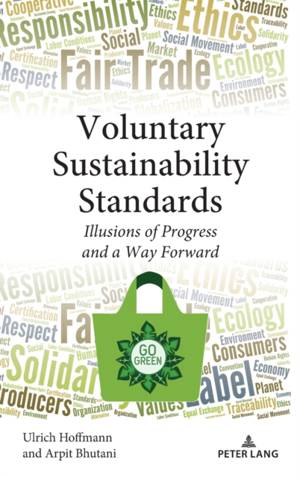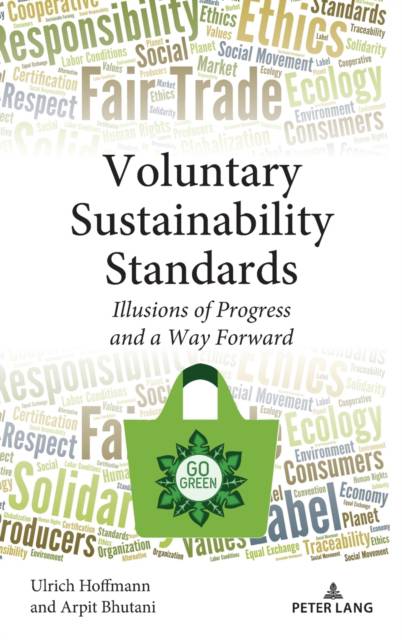
Bedankt voor het vertrouwen het afgelopen jaar! Om jou te bedanken bieden we GRATIS verzending (in België) aan op alles gedurende de hele maand januari.
- Afhalen na 1 uur in een winkel met voorraad
- Gratis thuislevering in België vanaf € 30
- Ruim aanbod met 7 miljoen producten
Bedankt voor het vertrouwen het afgelopen jaar! Om jou te bedanken bieden we GRATIS verzending (in België) aan op alles gedurende de hele maand januari.
- Afhalen na 1 uur in een winkel met voorraad
- Gratis thuislevering in België vanaf € 30
- Ruim aanbod met 7 miljoen producten
Zoeken
Voluntary Sustainability Standards
Illusions of Progress and a Way Forward
Ulrich Hoffmann, Arpit Bhutani
Hardcover | Engels
€ 174,95
+ 349 punten
Omschrijving
Sustainability standards, and in particular voluntary sustainability standards (VSS) have become an integral part of facilitating green consumerism and promoting green economy and green growth. While such standards have undoubtedly led to some desirable change in production structures and methods, as well as in improved material, resource and energy efficiency, overall results have remained modest, mostly incremental and far from leading to transformational, sector- or economy-wide changes. It is therefore high time that after some 30 years of increasing use of sustainability standards one takes stock of their achievements and pros and cons. This analysis should however not be confined to a technical review of the progress in improving or perfectioning the standard system and best practice in standard application and use, but primarily focus on a review of the political economy of VSS and their record in reshaping the current largely unsustainable agro-food economy and the situation of farmers. Many, in particular voluntary sustainability standards are now at a crossroads, but instead of realizing the systemic, deep-rooted nature of the crisis and conceiving of much-required reforms most standard advocates continue to focus their activities on improving the functioning of the standard system and emulating or disseminating best standard-compliance practice. Against this background, the book wonders what the illusions and what the reality of VSS have been in recent decades and whether these standards can be made fit for a future, in which sustainability issues are bound to play an even more important and pressing role. As appendix we looked into the relationship between the Corona crisis as one of the many other epidemics which have hit us hard and the future of globalized supply chains, of which VSS are part of.
Specificaties
Betrokkenen
- Auteur(s):
- Uitgeverij:
Inhoud
- Aantal bladzijden:
- 146
- Taal:
- Engels
Eigenschappen
- Productcode (EAN):
- 9781433187711
- Verschijningsdatum:
- 27/10/2021
- Uitvoering:
- Hardcover
- Formaat:
- Ongenaaid / garenloos gebonden
- Afmetingen:
- 152 mm x 229 mm
- Gewicht:
- 394 g

Alleen bij Standaard Boekhandel
+ 349 punten op je klantenkaart van Standaard Boekhandel
Beoordelingen
We publiceren alleen reviews die voldoen aan de voorwaarden voor reviews. Bekijk onze voorwaarden voor reviews.









